Ted Rabinowitz's Blog, page 5
August 21, 2017
The First Draft of "Conjure Man" Is Done. Now Come All the Others...
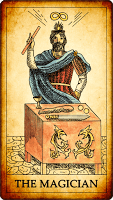 One hundred thousand words, yikes and yowzah.
One hundred thousand words, yikes and yowzah.When you're in the middle of the thing, all you want to do is drag yourself, bleeding and limping, across the finish line.
Then you do. And you blog about it. (Briefly, I promise.) And then you realize...The first draft isn't the end. It's the beginning. That's why it's first. And you take a pill to keep yourself from putting a steak knife through your ear.
But one thing I am learning (slowly) is that you have to accept mistakes. You can't be afraid to make them. Perfectionism isn't a desire to do things well; it's a fear of doing things badly. That's why perfectionism is the enemy of creativity, because creativity rarely (never say never) comes from a place of fear.
So if you can't make a shit ton of mistakes in your first draft, when can you?
It's amazing how hard that lesson is to learn, and how you have to keep learning it, over and over.
Published on August 21, 2017 14:38
August 15, 2017
One Caveat About Plumbers and Leaders
In my last post, I asked folks to think of presidents as not as leaders, but as plumbers.
My point was that we don't owe automatic deference to either presidents or plumbers - that both are just jobs. The presidency is a harder, more dangerous job, with more disastrous consequences, but a president isn't above other citizens or the law. So treat him like a plumber: Expect honesty, expect competence, and toss him if he doesn't display those two qualities.
After the events in Charlottesville, I feel I have to add something:
Your plumber should be honest.
Your plumber should be competent.
And your plumber should not be a fucking Nazi.
I thought that went without saying in the United States of America. I can see that I was wrong.
My point was that we don't owe automatic deference to either presidents or plumbers - that both are just jobs. The presidency is a harder, more dangerous job, with more disastrous consequences, but a president isn't above other citizens or the law. So treat him like a plumber: Expect honesty, expect competence, and toss him if he doesn't display those two qualities.
After the events in Charlottesville, I feel I have to add something:
Your plumber should be honest.
Your plumber should be competent.
And your plumber should not be a fucking Nazi.
I thought that went without saying in the United States of America. I can see that I was wrong.
Published on August 15, 2017 07:02
August 4, 2017
Your President, the Plumber
Don't think of your president as your leader.
Think of him as your plumber.
You have do what your leader tells you.
Your plumber has to do what you tell him.
A "leader" has to be extraordinary - wise, brave, just, merciful, heroic.
A plumber only has to be honest and know his job.
It's damned near impossible to find a leader outside of a TV drama...or an historical documentary on dictators who claimed to be leaders and weren't.
But you can find a good plumber on Yelp.
And most important:
Your leader can jail you, kill you, confiscate your home. He can order you to die in a war that you despise.
But you can fire your plumber.
Think of him as your plumber.
You have do what your leader tells you.
Your plumber has to do what you tell him.
A "leader" has to be extraordinary - wise, brave, just, merciful, heroic.
A plumber only has to be honest and know his job.
It's damned near impossible to find a leader outside of a TV drama...or an historical documentary on dictators who claimed to be leaders and weren't.
But you can find a good plumber on Yelp.
And most important:
Your leader can jail you, kill you, confiscate your home. He can order you to die in a war that you despise.
But you can fire your plumber.
Published on August 04, 2017 11:21
July 21, 2017
Kaleidocast Is Kicking
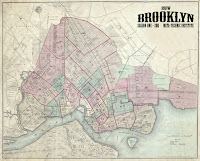 Kidlings and podlings, just a reminder:
Kidlings and podlings, just a reminder:The Kaleidocast Kickstarter is now live, and they are already 35% there.
ICYMI, Kaleidocast is a podcast produced by the Brooklyn Speculative Fiction Writers, featuring audio versions of short stories by luminaries like Jonathan Lethem, Nnedi Okorafor, N.K. Jemisin, and - yes! - yours truly.
Their Kickstarter is meant to turn the project into a full-fledged, no-holds-barred SFWA paying market on a par with Analog, Asimov's, and The Magazine of Fantasy & Science Fiction.
They have great, great, GREAT prizes (from signed books to tuckerization to custom-written stories) and, well - if you like where SFF is going, this is how to hop on the train and take the ride.
Go, my pretties!
Support Kaleidocast !
Published on July 21, 2017 14:17
July 17, 2017
Do You Like Weird Sci-Fi Art? Of Course You Do
 Let's deconstruct:
Let's deconstruct:It's a space rabbit.
It's pink.
It's eating a planet...
But none of that is enough. It also has to be shooting laser beams from its nose.
So God bless the '70s Sci-Fi Art Page.
Published on July 17, 2017 17:58
July 10, 2017
Kaleidocast Kickstarter
 For two seasons now, my speculative-fiction friends in Brooklyn have been doing a super-sweet podcast called the
Kaleidocast
. Its first season features readings of short stories by (among others) Jonathan Lethem, Richard Bowes, and yours truly; the second season will feature Nnedi Okorafor, Shan Chakraborty, Carlos Hernandez, N.K. Jemisin, Phenderson Djèlí Clark, and...yours truly!
For two seasons now, my speculative-fiction friends in Brooklyn have been doing a super-sweet podcast called the
Kaleidocast
. Its first season features readings of short stories by (among others) Jonathan Lethem, Richard Bowes, and yours truly; the second season will feature Nnedi Okorafor, Shan Chakraborty, Carlos Hernandez, N.K. Jemisin, Phenderson Djèlí Clark, and...yours truly!To top it all off, they're doing a Kickstarter. Go to it here.Sign up! Get stuff! Pledge enough and I will sign a book for you! Pledge even more, and it might be one of mine!What more do you want?
Published on July 10, 2017 11:49
July 3, 2017
Just Like in L.A.
Yesterday I hiked Inwood Hill Park.
It was just like hiking Fryman Canyon in Los Angeles.
Except for the humidity.
And the trees.
And the mighty river below it, instead of the wee drainage ditch.
And the wet, vivid green of the leaves, instead of dusty beige.
And there were no body-righteous types in Day-Glo exersuits.
And the Spanish I heard had a Dominican accent.
Okay. You know what was the same?
The slope. It was steep as hell.
And I sweated a lot.
That was the same.
It was just like hiking Fryman Canyon in Los Angeles.
Except for the humidity.
And the trees.
And the mighty river below it, instead of the wee drainage ditch.
And the wet, vivid green of the leaves, instead of dusty beige.
And there were no body-righteous types in Day-Glo exersuits.
And the Spanish I heard had a Dominican accent.
Okay. You know what was the same?
The slope. It was steep as hell.
And I sweated a lot.
That was the same.
Published on July 03, 2017 13:14
July 2, 2017
Armor Is Not That Heavy!
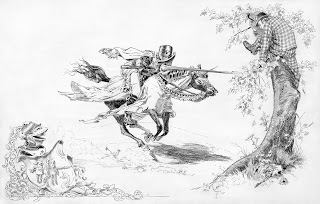 So, mea culpa. In The Wrong Sword, I made some (frankly almost inevitable) jokes about the weight of medieval armor. This is something of a grand tradition in medieval stories, starting at least as early a Mark Twain's Connecticut Yankee in King Arthur's Court, where cranes were imagined to hoist knights onto their horses.
So, mea culpa. In The Wrong Sword, I made some (frankly almost inevitable) jokes about the weight of medieval armor. This is something of a grand tradition in medieval stories, starting at least as early a Mark Twain's Connecticut Yankee in King Arthur's Court, where cranes were imagined to hoist knights onto their horses.Now, I never went that far, but I did describe things like the armor stopping just a moment after the wearer does, and our stalwart (but underweight and undertall) protagonist toppling under the weight of full jousting armor.
Seems I was overstating things a wee bit. Not to say that armor is light as a feather, but this great post on the Medievalist blog shows us what an athletic wearer can do in Late Medieval plate armor. Enjoy!
Published on July 02, 2017 10:41
June 26, 2017
Before Hogwarts, There Was Greyfriars
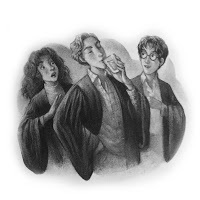 Today is the 20th anniversary of the Potterverse. Twenty years. Wow. Cheers!
Today is the 20th anniversary of the Potterverse. Twenty years. Wow. Cheers!I was too old to be swept up by Pottermania when it conquered the world, but if I had read the books when I was younger, I can easily believe they would have colonized my mind, laying eggs in my imagination like some conceptual xenomorph. So brava, Rowling! Brava!
And from a fellow writer's perspective, I've always been impressed by Rowling's skills. It's fashionable among uber-nerds to get all critical-theory and talk about cliches and overused tropes and blah-blah-blah. But a trope gets used because it works, and cliches don't start off that way. Katherine Trendacosta over at i09.com has written a handy article that makes those points and a few others.
But most bloggers usually overlook the real wellspring of Hogwarts: the school story. The school story isn't just a story set in a school. Clueless isn't a school story; neither is The Perks of Being a Wallflower nor The Betsy-Tacy High School Stories nor anything by Judy Blume. In fact, the school story as a genre had been dead for thirty years when, in 1997, JK Rowling brought it back to life...with magic.
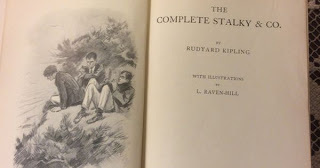 To really understand the school story, you need to read some Orwell (sorry) - an essay called Boys' Weeklies. (And you could also read the book that started it all, Tom Brown's School Days, or the one that kind of stood it on its head, Stalky & Co.) Basically, school stories are set at British boarding schools in the Victorian and Edwardian eras. They're told from the point of view of the students; there are student intrigues, student types, sports madness, hallowed halls, prefects and houses, nasty teachers, sympathetic headmasters, and a variety of other tropes that get heavy use...any of this ringing a bell?
To really understand the school story, you need to read some Orwell (sorry) - an essay called Boys' Weeklies. (And you could also read the book that started it all, Tom Brown's School Days, or the one that kind of stood it on its head, Stalky & Co.) Basically, school stories are set at British boarding schools in the Victorian and Edwardian eras. They're told from the point of view of the students; there are student intrigues, student types, sports madness, hallowed halls, prefects and houses, nasty teachers, sympathetic headmasters, and a variety of other tropes that get heavy use...any of this ringing a bell?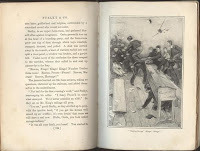 Stalky & Co
Stalky & CoThe school story was ultimately brought low by changes in British society - especially the collapse of the elite class assumptions that made the school story so appealing to so many readers who would never meet a baronet, let alone study at Eton. But for almost a century the genre was popular enough to support more than a dozen weekly magazines, not to mention novel series and movie and radio adaptations. In fact, Greyfriars, the setting of the school stories available in The Magnet, (which ran weekly from 1908 to 1940) had the same allure to readers that Hogwarts has today. There were maps of the school, detailed bios of the characters, notes on school history, a veritable Potterverse of subsidiary information.
The dissolution of the British Empire seemed to be the death blow to school stories. But then, when it looked like the genre was condemned to a ghostly afterlife attended only by literary scholars, Rowling substituted magic for the British class system, and brought it back to life. One genre writer to another, she is my hero.
Published on June 26, 2017 13:20
Hogwarts vs. Greyfriars!
 Today is the 20th anniversary of the Potterverse. Twenty years. Wow. Cheers!
Today is the 20th anniversary of the Potterverse. Twenty years. Wow. Cheers!I was too old to be swept up by Pottermania when it conquered the world, but if I had read the books when I was younger, I can easily believe they would have colonized my mind, laying eggs in my imagination like some conceptual xenomorph. So brava, Rowling! Brava!
And from a fellow writer's perspective, I've always been impressed by Rowling's skills. It's fashionable among uber-nerds to get all critical-theory and talk about cliches and overused tropes and blah-blah-blah. But a trope gets used because it works, and cliches don't start off that way. Katherine Trendacosta over at i09.com has written a handy article that makes those points and a few others.
But most bloggers usually overlook the real wellspring of Hogwarts: the school story. The school story isn't just a story set in a school. Clueless isn't a school story; neither is The Perks of Being a Wallflower nor The Betsy-Tacy High School Stories nor anything by Judy Blume. In fact, the school story as a genre had been dead for thirty years when, in 1997, JK Rowling brought it back to life...with magic.
 To really understand the school story, you need to read some Orwell (sorry) - an essay called Boys' Weeklies. (And you could also read the book that started it all, Tom Brown's School Days, or the one that kind of stood it on its head, Stalky & Co.) Basically, school stories are set at British boarding schools in the Victorian and Edwardian eras. They're told from the point of view of the students; there are student intrigues, student types, sports madness, hallowed halls, prefects and houses, nasty teachers, sympathetic headmasters, and a variety of other tropes that get heavy use...any of this ringing a bell?
To really understand the school story, you need to read some Orwell (sorry) - an essay called Boys' Weeklies. (And you could also read the book that started it all, Tom Brown's School Days, or the one that kind of stood it on its head, Stalky & Co.) Basically, school stories are set at British boarding schools in the Victorian and Edwardian eras. They're told from the point of view of the students; there are student intrigues, student types, sports madness, hallowed halls, prefects and houses, nasty teachers, sympathetic headmasters, and a variety of other tropes that get heavy use...any of this ringing a bell? Stalky & Co
Stalky & CoThe school story was ultimately brought low by changes in British society - especially the collapse of the elite class assumptions that made the School Story so appealing to so many readers who would never meet a baronet, let alone study at Eton. But for almost a century the genre was popular enough to support dozens of weekly magazines, not to mention novel series and movie and radio adaptations. In fact, Greyfriars, the setting of the School Stories available in The Magnet, (which ran weekly from 1908 to 1940) had the same allure to readers that Hogwarts has today. There were maps of the school, detailed bios of the characters, notes on school history, a veritable Potterverse of subsidiary information.
The dissolution of the British Empire seemed to be the death blow to school stories. But then, when it looked like the genre was condemned to a ghostly afterlife attended only by literary scholars, Rowling substituted magic for the British class system, and brought it back to life. One genre writer to another, she is my hero.
Published on June 26, 2017 13:20



